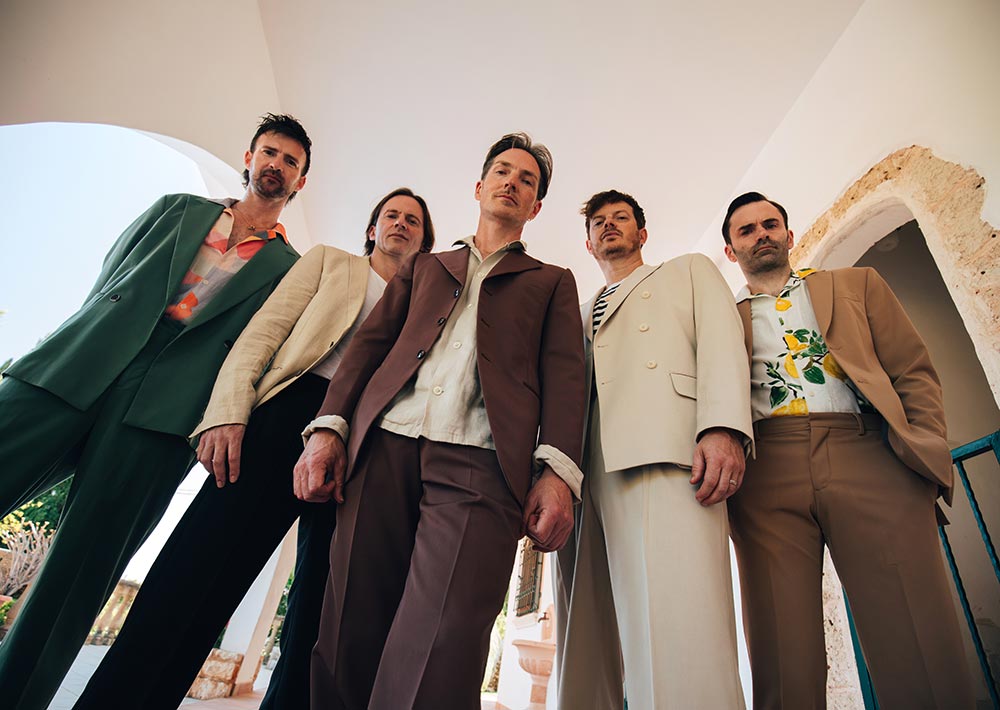
The Feeling. Dan Gillespie Sells: “Pop music was the place…where I could express different musical influences in one place”
The feel-good pop-rocksters’ frontman and principal songwriter fills us in on the “simple” creation of their second Top 10 single
When listening to the first four singles from British pop-rock band The Feeling, you immediately got the sense that they were one of the most aptly-named groups out there. Sewn, Fill My Little World, Never Be Lonely, and Love It When You Call (each released in 2006), all wore their yearning hearts on their catchy sleeves and made Dan Gillespie Sells and his bandmates the mid-noughties poster boys for music that was brazenly infectious and soul-baringly sentimental.
A flame to attract anyone experiencing the full gamut of love and heartbreak, it’s no surprise that their music found plenty of welcoming ears. On its way to earning its Triple Platinum status, debut album Twelve Stops And Home reached No 2 in the UK album chart and their 2008 follow-up Join With Us went one further when it topped the charts. Not just fan favourites, The Feeling were also named Songwriters of the Year at the 2007 Ivor Novello Awards.
We caught up with Dan while he was working in Los Angeles and heard how his “simple” little song Fill My Little World first emerged in his North London home almost 20 years ago…
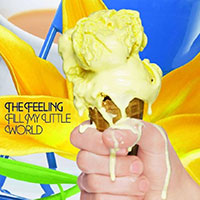
Released: 7 November 2005
Artist: The Feeling
Label: Island
Songwriter: Dan Gillespie Sells, Richard Jones, Kevin Jeremiah, Ciaran Jeremiah, Paul Stewart
Producers: The Feeling
UK Chart Position: 10
US Chart Position: –
“One day, a very long time ago, I was writing new songs, the band was defined, existed, but kind of not really very formally. We were kind of a bunch of mates who’d always played together at school – we’ve been in bands since we were 16 years old. But we were having a bit of a break because they were busy working with Sophie [Ellis Bextor] at the time, I think. So I kind of went off and wrote a bunch of songs and one of them was Fill My Little World.
“I was in North London, I was just at home writing songs. I had this very simple sequence that I thought was just a little bit different to what else was going on at the time. And I was really interested in writing pure pop. I’d been in indie bands and rock bands and I was a DM-wearing indie kid in the 90s when I was a teenager. But then got into my 20s and slightly broadened my horizons, musically, and I realised that pop music was the place where all these things came together – where I could express different musical influences in one place.
“It’s weird, actually, because I was loving the stuff that was coming out of the R&B scene at the time. It was the early noughties when that was the most exciting place for modern pop music, particularly the kind of female-led R&B that you’d get in the Heaven nightclub on a Monday night. There was a room that just played everything like Mary J. Blige, Brandy and Dre. There was all this kind of stuff that felt rhythmically quirky, you know, Missy Elliott stuff. It was never going to be something that I was going to literally do, musically speaking, because I’m a geeky white boy! I was never going to do that. And, at that time, just the idea of me doing that kind of music felt stupid, but I loved the rhythmical bounce of all that stuff, the quirk of it. The demo had a kind of weird slightly trip-hop beat to it, initially, before the band kind of got their hands on it. It was this slightly odd, quirky thing with me and an acoustic guitar… and it has a slightly lumpy groove to it, which I love. And I think it was group-based, really, when I started writing it.
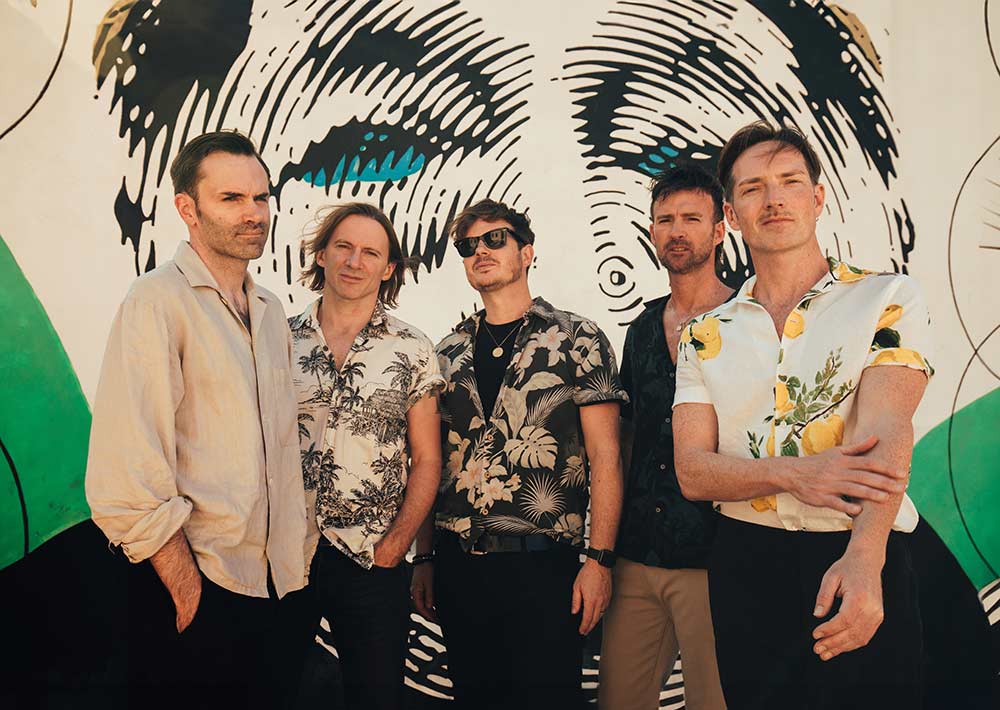
The Feeling. Dan Gillespie Sells: “We organised a way of splitting everything amongst us, even if it was stuff that I pretty much had written myself.”
“Lyrics were never something that I ever really quite grasped until much later on in my career, when I started to really delve into what a lyric can do for a song. In the early days, it was just some way of accompanying a melody, something that felt right over the music. But I don’t think I was being particularly cerebral about it. I think I was just going, ‘This is just some stuff to sing.’ You know, in order to make a pop song, you need to have some words and it was like, that’s how I was doing lyrics in the very beginning. And then, as I grew as a writer, I started to really find the lyrics to be the most important thing, you know. But [until then] it was the bottom of the list, it was the pain in the ass bit!
“How the song developed was pretty typical, in that the song essentially was written. Not every single flourish of it, but most of the actual basic structure of the song – verse and chorus, the bridges and everything, they were all there in place. And the band, by virtue of just playing it, made it sound like it sounds – it was really quite simple. There were songs that evolved quite a lot once the band got their hands on them, but Fill My Little World kind of stuck to what the demo was doing. [Even so] all of the songs are credited to all of us as writers. Because we knew that, the way the music industry was at that particular period – particularly as a published writer – the money was all in the publishing, there wasn’t so much to be made out of the actual record sales. Particularly at that time, because of radio and the way that syncing works, the money was all in the publishing. So there would be such a ridiculous imbalance between me and the rest of the boys in the band if we didn’t do a kind of slightly clever split on the writing. So we organised a way of splitting everything amongst us, even if it was stuff that I pretty much had written myself.
“Often it was just me at the piano, or sometimes I would have done some kind of odd demo with my very limited programming skills. So it was a real combination of things that created the album [Twelve Stops And Home], and it was always important for us to all have equity in it and be part of it. Because it’s always like there’s always a bit of a blurred line when you’re working in a band. Someone comes up with an amazing guitar lick, and someone could come up with a riff that’s quite central, and for them not to be credited as a songwriter is a bit wrong. So we felt it was the right thing to do, to always share the songwriting.”



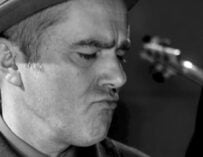


![Interview: Jessie Jo Dillon [2025]](https://www.songwritingmagazine.co.uk/wp-content/uploads/jessie-jo-dillon-2-by-libby-danforth-335x256.jpg)

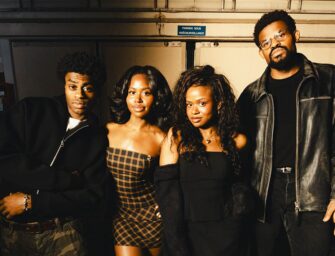






















Related Articles